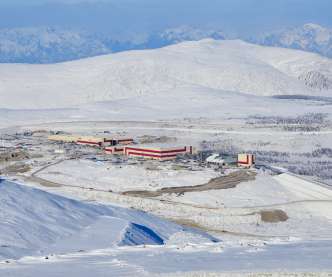Udokan Copper to cut carbon intensity of copper production up to 75% by 2035
Green Car Congress
AUGUST 4, 2022
Russia-based Udokan Copper , the developer of Russia’s largest new copper deposit, outlined scenarios to cut the carbon intensity of copper production up to 75% by 2035, bringing the company closer to its ultimate goal of climate neutrality in the long run. In 2021, Udokan Copper invested RUB 764 million (US$11.5


























Let's personalize your content